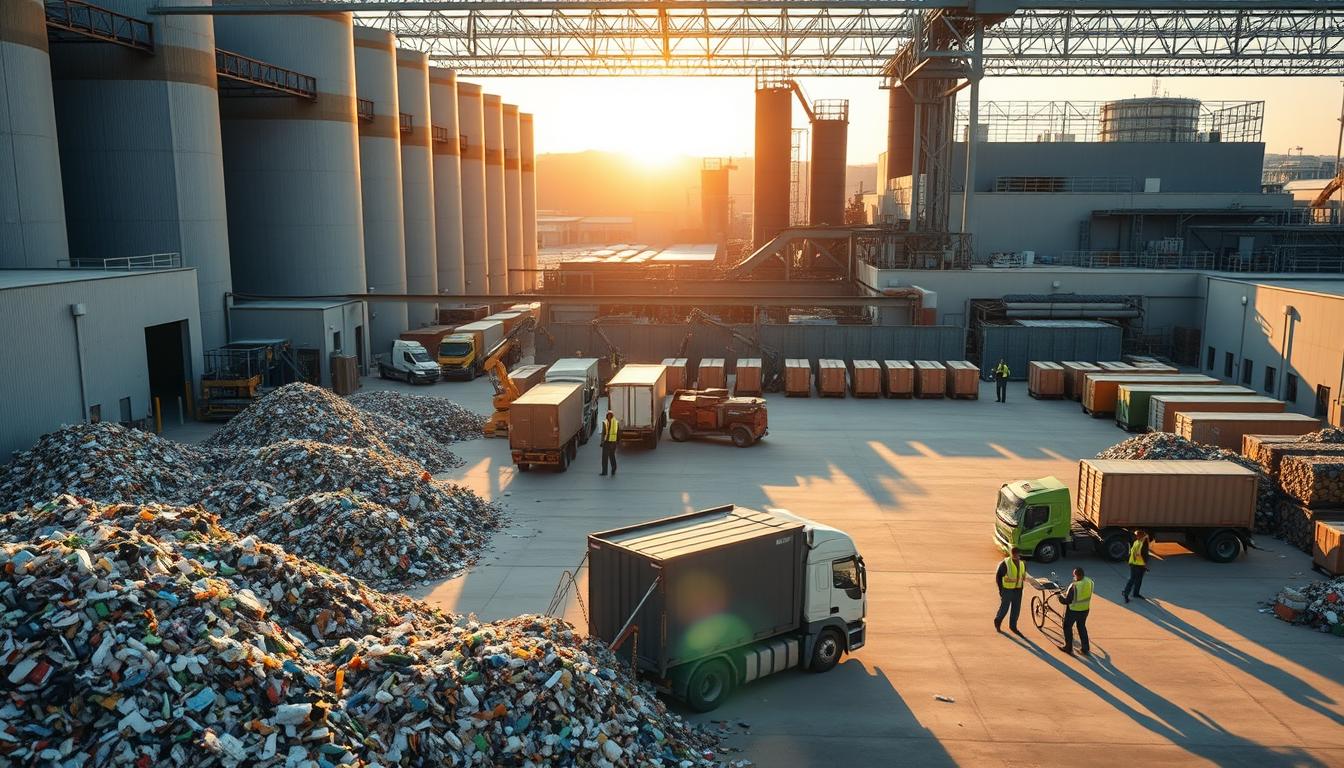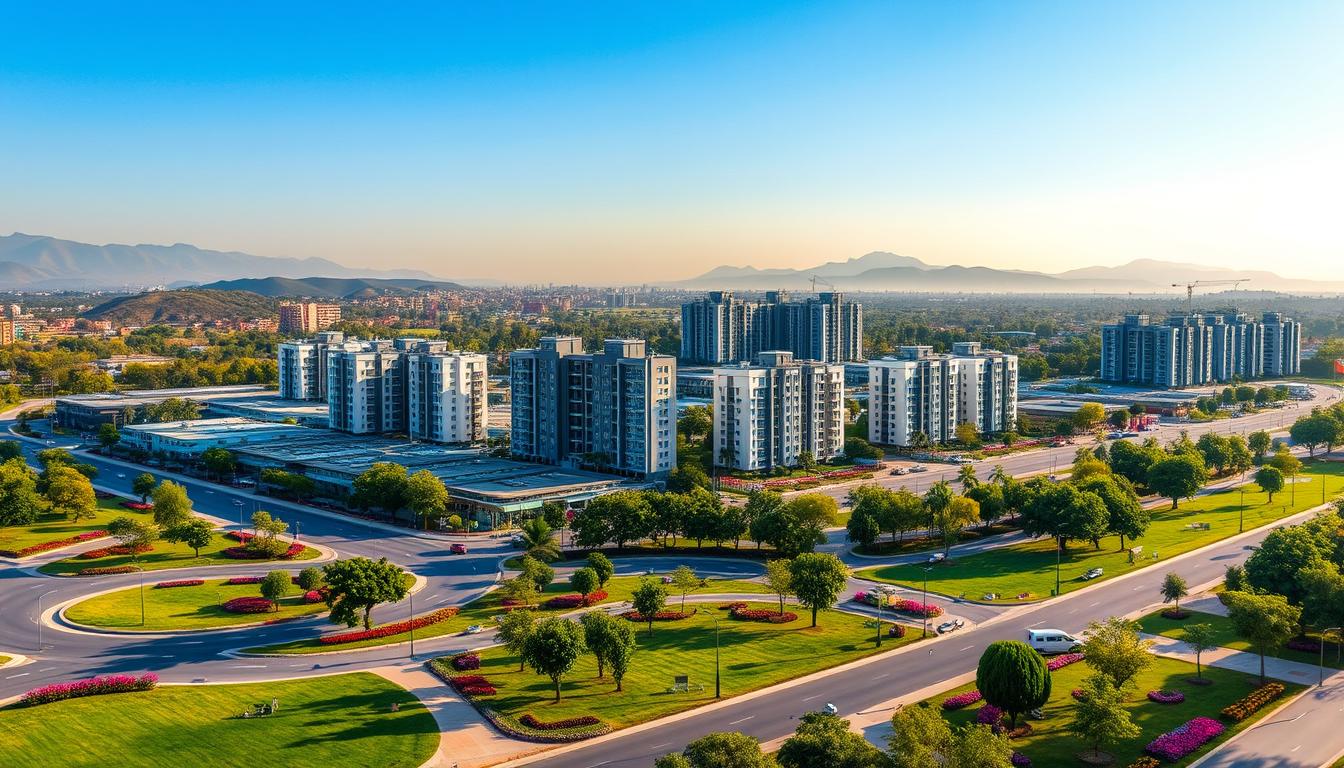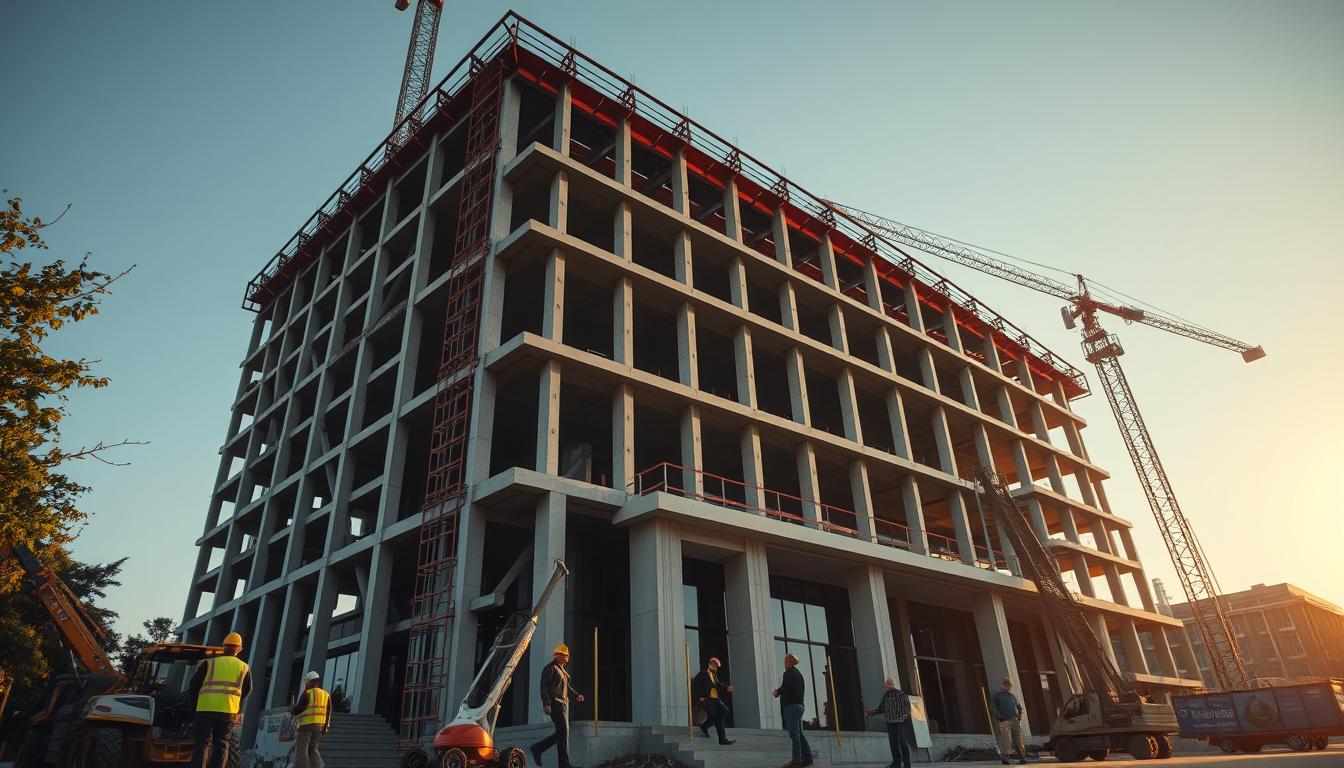The city of Panchkula is making a big move towards being more sustainable. It plans to set up five Material Recovery Facilities (MRFs). This move is aimed at reducing the city’s environmental impact.
These new facilities will be key in changing how Panchkula handles waste. By investing in new waste management systems, the city shows it cares about keeping its air and water clean. This is good for the health and happiness of its people.
Key Takeaways
- Panchkula is establishing five Material Recovery Facilities to improve waste management.
- The initiative aims to enhance the city’s sustainability and reduce its environmental footprint.
- The facilities will play a critical role in transforming Panchkula’s waste management landscape.
- The city’s investment in modern waste management infrastructure demonstrates its commitment to a cleaner environment.
- The project is expected to have a positive impact on the health and well-being of Panchkula’s residents.
Panchkula’s Bold Step Toward Modern Waste Management
Panchkula is focusing on sustainability and changing its waste management ways. The city’s old waste handling system is not working well. It needs a new, better approach.
Current Waste Management Challenges in the City
Panchkula is dealing with bad waste handling and disposal. This is causing harm to the environment. The city’s growing population is making more waste than it can handle.
Announcement of the Five-Facility Project
Panchkula is starting a big project to fix these problems. They plan to build five Material Recovery Facilities (MRFs). This will help the city recycle more and send less waste to landfills.
Key Officials Present at the Announcement
Important people were at the announcement. They included officials from the Municipal Corporation of Panchkula. Their presence showed the city’s dedication to better waste management and sustainability.
Building these MRFs is a big step for Panchkula. It shows the city’s goal for a cleaner, greener future.
Facilities for Waste Management: The MRF Approach
Material Recovery Facilities are leading Panchkula’s new waste management plan. They aim to boost waste reduction and recycling. These facilities are a big step towards updating the city’s waste handling systems.
What Makes Material Recovery Facilities Effective
Material Recovery Facilities (MRFs) sort and process waste well, getting more recyclables. The Ellen MacArthur Foundation says MRFs are key in recycling materials. This method cuts down landfill waste and saves natural resources.
Operational Mechanics of Modern MRFs
Modern MRFs use sorting technologies and methods to work fast and protect the environment. They mix manual sorting, mechanical steps, and tech like optical scanners and air classifiers. These tools help sort waste efficiently.
Sorting Technologies and Processing Methods
Modern MRFs use optical scanners to spot materials and air classifiers to sort by weight. These tools help sort recyclables from trash well. This makes the waste management process more effective.
Capacity and Throughput Expectations
The five Material Recovery Facilities in Panchkula will greatly increase waste handling capacity. With new tech and methods, they’re expected to process a lot of waste. This will help reduce landfill use and boost recycling.
Strategic Locations and Implementation Timeline
Panchkula is set to change its waste management with five new facilities.
The success of this project relies on where these facilities are placed.
The Five Selected Areas in Panchk204
The five facilities will be in different spots across Panch204 to make a big impact.
They were picked for their high population, waste, and current setup.
>
- Area 1: Sector 1, bustling with business
- Area 2: Sector 6, a big residential area
- Area 3: Sector 12, full of industry
- Area 4: Sector 15, a learning hub
- Area 5: Sector 21, a mix of everything
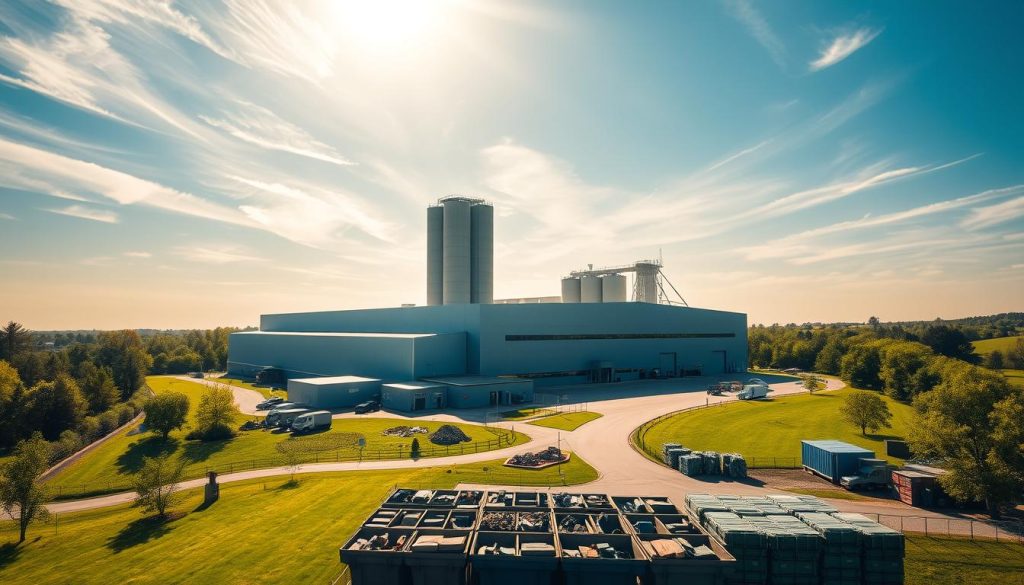
Phased Construction and Deployment Plan
The five facilities will be built in stages.
The first one will start in the next 12 months. The others will come every three months after.
First Facility Expected Completion Date: Q1 202
Budget Allocation and Financial Framework
A special budget is set for the five facilities.
This plan makes sure the project stays on schedule and within budget.
of =1 line-item breakdown of ‘s of breakdown funds
| Component | Budget Allocation |
|---|---|
| Facility Construction | 60% |
| Equipment and Technology | 20% |
| Operational Costs | 10% |
| Contingency Funds | 10% |
h2>Environmental and Economic Impact on on Panchkula
Panchkula is starting five Material Recovery Facilities. This will change how the city handles waste. It will help the environment and boost the local economy.
Projected Reduction in Landfill Waste
>
New Material Recovery Facilities will cut down landfill waste. Panchkula plans to use new sorting and processing tech. This could reduce waste by 40% in two years.
This big cut in waste will make the environment cleaner. It will also make Panchkula a healthier place for people.
An expert says, “Cutting down landfill waste is key to sustainable waste management.”1.
Resource Recovery and Recycling Targets
The new facilities aim to increase recycling. They want to recycle 30% of waste in the first year. They plan to reach 50% in five years.
This will save natural resources and lessen the need for raw materials.
Job Job Creation and Local Benefits
The five facilities will create jobs in Panchkula. They will hire over 200 people directly and indirectly. This will boost the local economy and improve community life.
Skills Development and Training Programs
A training program will help the facilities succeed. It will teach local people how to run the facilities well. Partnerships with schools will create special training programs.
This training will make the facilities more efficient. It will also empower the local workforce. An expert says, “A skilled workforce is vital for sustainable waste management.”
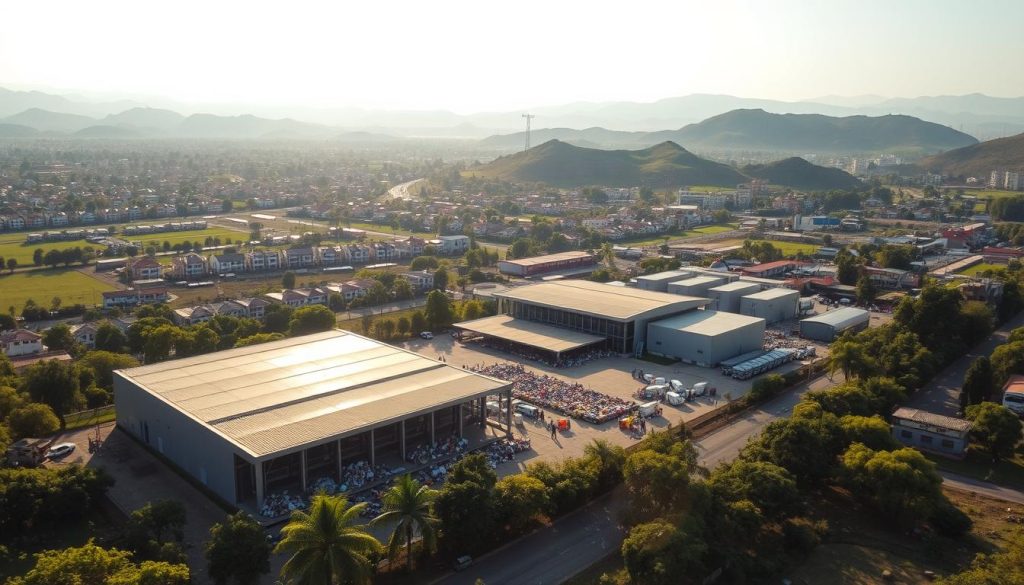
Collaborative Efforts Behind the Initiative
The success of Panchkula’s Material Recovery Facilities project shows the power of working together. It brings together different groups, each playing a key role. This helps in making the project a reality.
Municipal Corporation of Panchkula’s Leadership
The Municipal Corporation of Panchkula leads this effort. They make sure the project meets its goals. They work with other departments and groups to make things run smoothly.
Technical Partners and Technology Providers
Technical partners and tech providers are key to the project’s success. They bring in their expertise and new ideas to improve waste management. Their work includes setting up efficient Material Recovery Facilities that meet global standards.
Public-Private Partnership Model
The project uses a Public-Private Partnership model. This combines the best of both worlds. It brings in private sector efficiency and innovation, while keeping public oversight and accountability.
Community Awareness and Participation Programs
Community Awareness and participation are essential for the project’s success. It includes programs to teach people about proper waste disposal and the benefits of Material Recovery Facilities. This helps build a sense of community and cooperation, which is vital for the project’s success.
In conclusion, the teamwork behind Panchkula’s Material Recovery Facilities project shows how effective waste management can be achieved. By working together, Panchkula is set to make big improvements in its waste management.
Conclusion: Transforming Panchkula’s Waste Management Landscape
Panchkula is taking a big step by setting up five Material Recovery Facilities. This move aims to make waste management more sustainable. It will help process waste better, boost recycling, and make the environment cleaner.
These modern facilities will not only make Panchkula greener but also set an example for other Indian cities. As Panchkula continues with this project, it will see lasting benefits. These include less waste in landfills and more resources recovered.
The success of this effort relies on teamwork. The Municipal Corporation of Panchkula, technical partners, and the community must work together. With a solid plan, Panchkula is ready to change its waste management scene and lead in sustainability.
